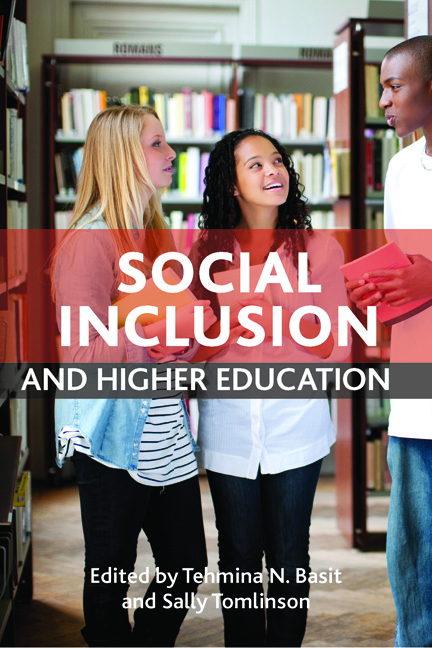nine - Widening participation in the higher education quasi-market: diversity, learning, and literacy
Published online by Cambridge University Press: 01 September 2022
Summary
Introduction
A starting point for this chapter is an understanding that the demands of global competition and the development of a ‘knowledge economy’ in the late 20th and early 21st centuries have led to the inception of a new ‘mass’ higher education (HE) service. Alongside this, within all sectors of education in England, there has been a strengthening of quasimarketisation as a mechanism for improving ‘standards’. Among the pieces of legislation underpinning these policies, the Further and Higher Education Act 1992 laid the foundations for a distinct stratification of universities: new universities entered the newly formed ‘market’ to compete with more established (so-called ‘red brick’) universities; with Oxford and Cambridge forming the crust of ‘excellence’. But, while the new massification of HE might suggest increased social mobility and the expansion of middle-class privilege and general prosperity, instead, particularly since New Labour took office in 1997, social divisions appear to have widened and social mobility has stalled (Nunn et al., 2007). Issues of great concern have been expressed in a Cabinet Office report, Unleashing Aspiration: The Final Report on the Panel on Fair Access to the Professions, which sees improving access to ‘professional’ jobs as a key policy driver in the coming years (Cabinet Office, 2009).
Alongside an entrenchment of social division and privilege, cultural strands of late modernity have emphasised individual/group identities. Theory has opened up new perspectives and brought positive political benefits, but the kind of solidarity that was connected to social class in the first part of the 20th century has fragmented. So, while a sense of who we are and to which social groups we belong has strengthened (in terms of ‘race’, gender, disability, social class origins, etc), this radical awareness has not led to coordinated and collective challenges to policies and structures. Instead, these identities seem to have interacted with the market context in ways that have served to deepen structural problems of social injustice.
In 2009, the crisis in policies of market fundamentalism resulting from the collapse of trust in the global and local banking system signalled the possibility of a historic shift. However, the Comprehensive Spending Review (HM Treasury, 2010) that followed heralded significant cuts in public spending and contained no indication of any retreat from the market fundamentalism that led up to the crisis.
- Type
- Chapter
- Information
- Social Inclusion and Higher Education , pp. 193 - 214Publisher: Bristol University PressPrint publication year: 2012



